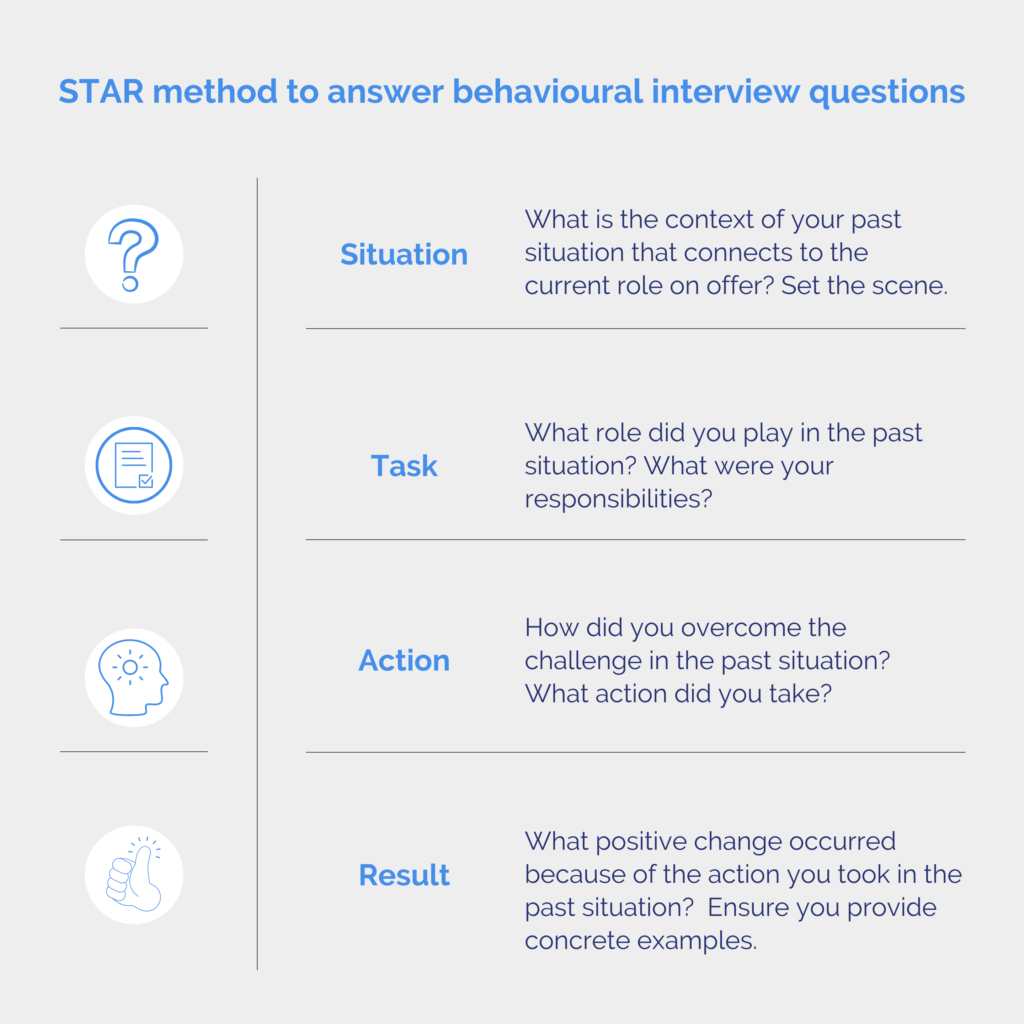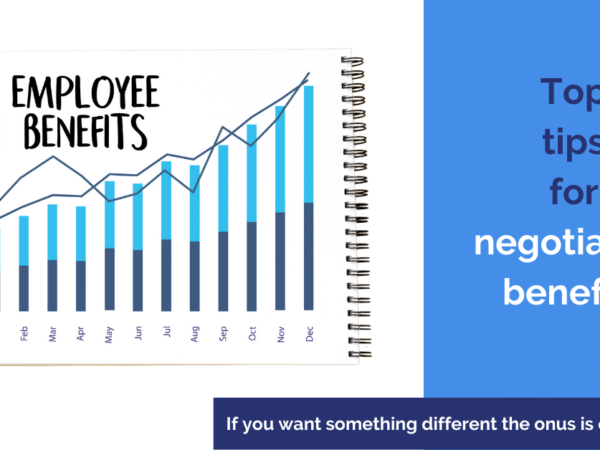One thing we come across a lot is candidates wondering what the difference is between behavioural interview questions versus ‘general’ interview questions and how best to prepare for them. Below, we take a look.

So, what are behavioural interview Questions?
Behavioural interview questions are based on what you’ve already done opposed to the more theoretical questions of what you would do in a situation. Put simply, it’s about real-life examples. The questions will be about your past experiences, how you specifically navigated situations relevant to that role, and how that can transfer into the new position.
Are behavioural interview questions necessary?
With this style of questioning, the interviewer is trying to ascertain how you approach and respond to situations. From the answers you give about past scenarios and how you handled them, the interviewer will be better able to predict your likely future performance.
How do I prepare?
We’ll keep it at two steps so you can hone into it.
- Review the job description for the role you’ll be interviewed for, and think about any past experiences you’ve had that could demonstrate how you can meet the key criteria.
- Then practice using the STAR method to answer questions, ie. situation, task, action, result.

What are some examples of common behavioural interview questions?
It would be impossible to list every question you could potentially be asked, but some common questions are:
- Can you describe a past project you worked on that showcases you are a team player? Mentioning communication and collaboration is essential for this answer and how your share of the project played into the overall project’s success.
- Describe a stressful work situation you’ve had and what you did to overcome it? Try and frame your response around converting a challenge into an opportunity.
- Think of a time when you came across a difficult stakeholder – what did you do to resolve the situation? Focus on how you can solve problems via your communication skills.
- In the past, if a colleague has had a different viewpoint to yours, how did you navigate this? You want to explain how you managed to find the middle ground via discussion, compromise, and diplomatic agreement.
- Have you been comfortable delegating work in the past, and how did you go about this? For example, you could mention the communication strategy you used and what steps you took to empower others.
- What would you consider to be your most outstanding professional accomplishment? Make sure your answer plays into the new role description along with gearing your response towards what motivates you.
Conclusion
There could be any number of questions thrown your way, but if you come prepared with having given thought to past real-life experiences and apply the context of what’s important to the construction industry and the role on offer, you should be well on your way to being a successful candidate.
For example, in construction, the questions could be around working weekends, successful construction projects you’ve worked on, which aspects of construction you enjoy the most and why, budget negotiations or approaches to leadership etc.
Think about your job in detail – your role, what you do, how you go about it, and what makes you think you’re good at your job. What are the things that you do that you like, what are the things that you do that you don’t like, and what are the things you think you’re good at by benchmarking yourself against your colleagues, eg. Tom is good at this, but I think I am better at this because I also do ‘X, Y, Z’, and have all of that in mind.
As long as you can picture concrete examples and practice the STAR method we discussed above, you should start feeling more comfortable with behavioural questions. People make the mistake of getting busy at work, then they turn up at an interview, and they just wing it. You could be the best candidate if you’re more prepared. Thinking about it beforehand gives you the best chance of having a good answer.
Looking for your next construction job? Search our current construction roles here, or to chat to our team about securing your next opportunity, get in contact with us through our Contact Us page.
Receive our updates straight to your inbox



